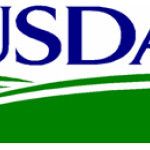- Industrie: Government
- Number of terms: 41534
- Number of blossaries: 0
- Company Profile:
A highly contagious herpesvirus infection affecting the central nervous system of swine, cattle, dogs, cats, rats, and other animals.
Industry:Agriculture
A slow progressive disease of mink caused by the Aleutian mink disease virus. It is characterized by poor reproduction, weight loss, autoimmunity, hypergammaglobulinemia, increased susceptibility to bacterial infections, and death from renal failure. The disease occurs in all color types, but mink which are homozygous recessive for the Aleutian gene for light coat color are particularly susceptible.
Industry:Agriculture
A slow progressive disease of mink caused by the Aleutian mink disease virus. It is characterized by poor reproduction, weight loss, autoimmunity, hypergammaglobulinemia, increased susceptibility to bacterial infections, and death from renal failure. The disease occurs in all color types, but mink which are homozygous recessive for the Aleutian gene for light coat color are particularly susceptible.
Industry:Agriculture
A disease characterized by intestinal malabsorption and precipitated by gluten-containing foods. The intestinal mucosa shows loss of villous structure.
Industry:Agriculture
A condition characterized by the presence of endotoxins in the blood. If endotoxemia is the result of gram-negative rod-shaped bacteria, shock may occur.
Industry:Agriculture
Toxins closely associated with the living cytoplasm or cell wall of certain microorganisms, which do not readily diffuse into the culture medium, but are released upon lysis of the cells.
Industry:Agriculture
Toxins closely associated with the living cytoplasm or cell wall of certain microorganisms, which do not readily diffuse into the culture medium, but are released upon lysis of the cells.
Industry:Agriculture
Living organisms found in nature that kill, weaken, or reduce the reproductive potential of other organisms.
Industry:Agriculture
